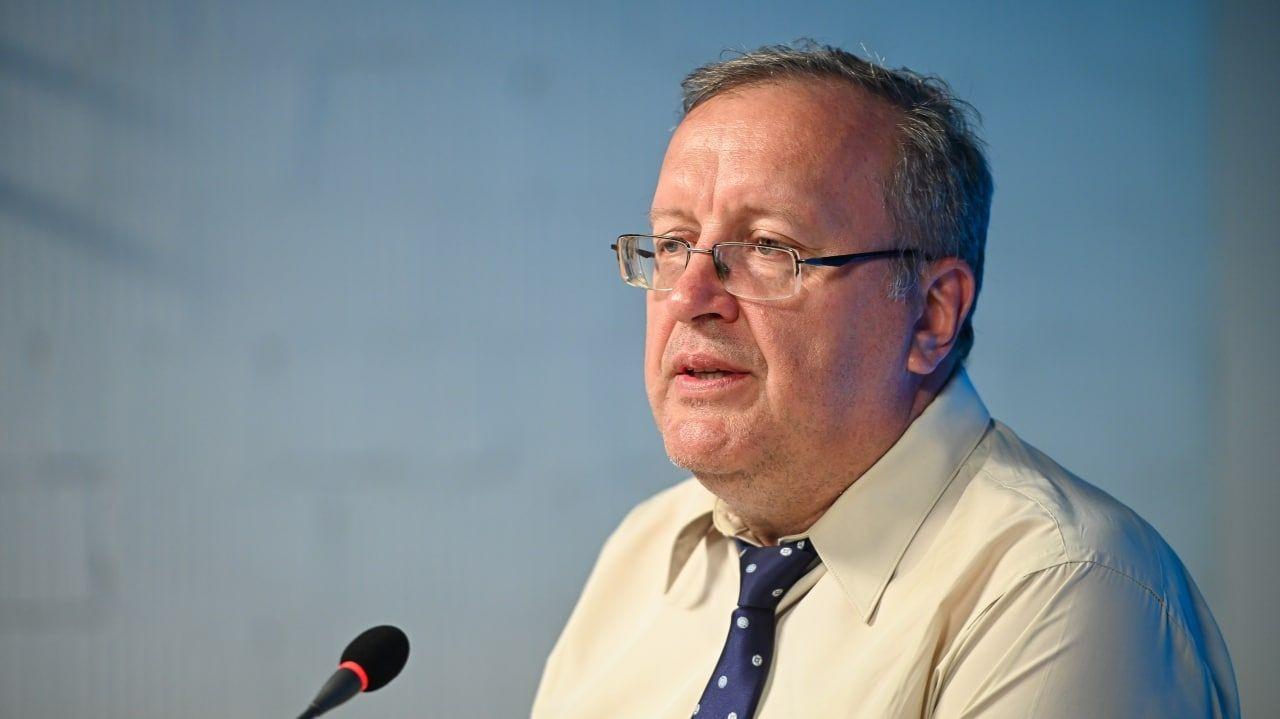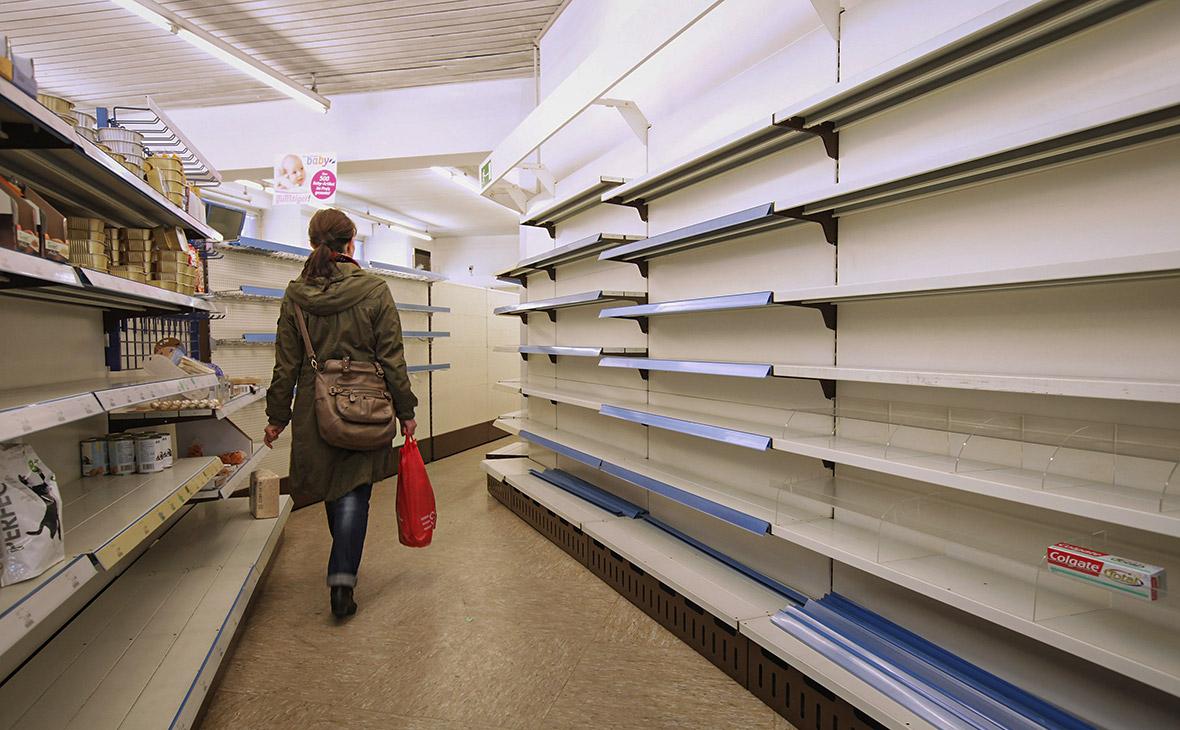Russian expert: Baku's efforts to grow grain in Karabakh very promising goal Professor Tkachnko hosted by Caliber.Az
The global food crisis threat looms over humanity like the sword of Damocles. Despite a partial solution to the problems with Ukrainian grain exports, which analysts said were the determining factor for global price growth, the situation has changed little - food in different countries is still getting more expensive, and forecasts on this front are the most pessimistic. Azerbaijan is also not immune to this problem; flour prices are rising, despite the government's efforts to stabilise the situation, which include expanding grain crop acreage and involving the private sector in adjusting market prices for certain product groups.
What is driving the global food crisis, how far can it go, and how serious is this threat to Azerbaijan? Stanislav Tkachenko, a Russian political scientist, doctor of economics, and professor at St Petersburg State University, responded to these questions of Caliber.Az.

- Despite the fact that the acute tension with the export of grain from Ukrainian ports and the restriction of Russian wheat export has been partially eliminated, the threat of hunger for humanity remains - the shortage problem appears to be solved, but prices are still skyrocketing. What is the cause of this turn of events, and what can be expected next?
- An intense debate has erupted among world trade experts about the causes of the food crisis that is growing before our eyes and threatening to affect many states around the world. The majority of those involved in the dispute agree that the crisis has no single cause and that its evolution reflects the complex processes taking place in the global political and economic systems.
There are two groups of reasons that are considered drivers of the deterioration of the overall food market situation. For starters, it is the world's leading economies' (American and European) soft monetary policy, as a result of which the volume of liquidity in the global trading system is growing significantly faster than industrial/agricultural production and market supply. Since the spring of 2020, when programmes to assist citizens and businesses in Europe and North America began to be implemented, the rate of price growth has accelerated dramatically. Inflation rates in the EU, the United Kingdom, the USA, and a number of other economies are at record highs in the past 40 years. And this situation leads to instability in certain commodity markets since it is commodities that dominate the global exchange trade, inflationary expectations are formed around them, and requirements for the creation of strategic reserves and reserves in case of unforeseen circumstances are proclaimed.
Secondly, it is the destabilization of global transport and logistics chains during the coronavirus period. The global industry has not had time over the past two years to react to the news generated by the pandemic. Thus, expectations of an economic downturn initially drove down prices for almost all commodities sharply. Azerbaijan remembers perfectly well how in March 2020 a barrel of oil cost slightly more than $20. Other commodities, including food, saw a similar drop in price. In this situation, demand for cargo transportation began to decline sharply. When raw material prices began to rise just three months later, transportation companies did not have time to respond in a timely manner, causing obstructions to arise and grow in the logistics chains. Thus, fluctuations in raw material prices and transportation companies' inability to change their market behaviour in a timely manner have destabilised the global economy, laying the groundwork for the current turmoil.
Finally, I'll mention one more factor, the importance of which is growing: inflation expectations. When all market participants believe that prices will only rise, price stability becomes a distant and elusive goal. These are the processes that are currently taking place in the world's food market.
- One way or another, we see that in recent years the danger of the global food crisis has been growing, periodically revealing new gaps in the food supply system, logistics or simply in the production of food resources (grain and others). Is this problem being addressed holistically, or does the threat of food shortages and rising prices have the potential to become a chronic disease of humanity, worsening over the years?
- Experts in the world economy are well aware that food on the planet is produced in sufficient volumes both in terms of volumes (calories) and in terms of individual types - fats, carbohydrates, proteins, etc. At any given moment, there is enough food on the market and in reserves to completely neutralise the threat of hunger.
The threat of a food crisis stems from individual states' unwillingness to cooperate with one another in agricultural trade, as well as from what scientists call "information asymmetry." It occurs when market players (including governments and international organisations) do not receive timely information about the shortage of food in a particular country or region, as well as information about failures in transport networks serving food turnover in the global economy. In some years, up to 40 per cent of food in the EU is destroyed due to the fact that it loses its attractive appearance (especially vegetables and fruits) or the expiration dates of products produced in volumes significantly exceeding the needs of national markets expire.
Therefore, the solution to the food crisis lies in more than just increasing production, increasing yields, or improving the quality of agricultural raw material storage and processing. Equally important is the work on preventing disruptions in the trade of food and agricultural raw materials, as well as careful monitoring of individual market segments and early detection of price increases and product shortages. Thus, the sanctions imposed by the EU and the US on Russia's fertiliser industry have become a significant factor in raising grain crop prices in the spring of 2022. And when these sanctions on potash and other mineral fertilisers were lifted with great delay, the opportunity had passed, and the rise in food prices could not be reversed. As a result, one important goal that could unite the entire global community interested in overcoming the threat of a food crisis should be to counteract various sanctions and barriers erected in the world trading system over the last six months.

- Azerbaijan is promptly making efforts to reduce the food crisis risks. For this purpose, for example, an agreement was signed with Israel on the introduction of special technology for sowing wheat in Azerbaijan's various regions, in particular in Karabakh. To what extent do you think Azerbaijan is protected from the excesses of the global food crisis and what other mechanisms should be worked out here?
- The Azerbaijani government's current efforts to increase the production of wheat and other grain crops are timely and should be welcomed. Through these measures, the potential is being created in your country to promptly meet the needs of the domestic market, which is especially important during times of crisis or general market instability. Since the availability of all traditional food products at reasonable prices is an indicator of the effectiveness of the authorities' work for the population, the growing domestic production increases the opportunities for commodity interventions and lower prices for socially sensitive types of food, primarily bakery and pasta products.
As for grain production in Karabakh, this is a very promising long-term goal that should be addressed as part of common efforts to restore normal life in this long-suffering region. Since there are enough water resources in Karabakh and there are considerable land areas suitable for crop production, the emphasis on priority grain cultivation is quite justified.








